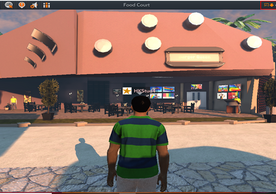
Dr. S. Raquel Ramos, PhD, MBA, MSN, FNP-BC is Associate Professor at the Yale School of Nursing and jointly appointed at the Yale School of Public Health Social and Behavioral Sciences. She was a former postdoctoral fellow at Yale Nursing in 2015. Her NHLBI-funded, five-year, career development award study, “LEveraging A viRtual eNvironment (LEARN) to Enhance Prevention of HIV-related Comorbidities in at-risk Men who Have Sex with Men (MSM),” is examining how a virtual environment can be used for cardiovascular disease prevention education. Her study was recently published in the Journal of Medical Internet Research Protocols.
Specifically, her study addresses a growing cardiovascular health equity gap and is a first-of-its-kind study using a virtual environment to address modifiable, behavioral risk factors specifically in gay and bisexual men with HIV. “By 2030, an estimated 78% of persons with HIV will be diagnosed with cardiovascular disease,” Dr. Ramos said. “This number is startling, and something needs to be done right now to reach communities who have been underserved.”
Using mixed methods, Dr. Ramos will conduct qualitative interviews and then test if the virtual environment is acceptable as prevention education. Using the American Heart Association’s Life Simple 7 Framework, Dr. Ramos is embedding information into the virtual environment to address issues, such as nutrition, physical activity, sleep, and nicotine exposure. Dr. Ramos expects that the virtual environment intervention will support participants in making informed decisions about heart disease prevention behaviors so they can increase their cardiovascular health.
“HIV is a stigmatizing condition,” Dr. Ramos said. “The online environment allows people to engage more freely with content and other players because participants will take on the identity of an anonymous avatar. They can navigate under pseudonyms and customize their avatar to make it their own.” Participants will engage with quests and answer questions such as “What is a healthy blood pressure?” Correct answers will result in reward points that can be used for further customization.
An unexpected finding in the study was the interest from HIV negative persons who wanted to participate in the virtual environment study. Because of this, Dr. Ramos has submitted two proposals to the NIH to use this cardiovascular disease prevention intervention in HIV negative gay and bisexual men. Additionally, Ramos found, “By conducting this study, I’ve learned that participants are indeed concerned about heart disease prevention, but they would also like to learn about prevention of COVID-19 and Monkeypox. This tells me that interventions should be broader in their approaches, understanding that persons have multiple health priorities.”
What’s Next
In addition to looking ahead to the next phase of her own program of research, Dr. Ramos is also preparing to cheer on student work. A group of her students recently had their poster abstract “Exploring perceptions of concern regarding HIV-associated chronic conditions in sexual minority men of color with HIV: A qualitative data analysis” accepted to the LGBTQ+ health session at the American Public Health Association’s 2022 Scientific Meetings in Boston this November. Also in November, Dr. Ramos will be inducted as a Fellow into the New York Academy of Medicine.
Connect on Social Media
Follow Dr. Ramos on Twitter @SRaquel_PhD and learn more about YSN faculty, students, and alumni across all our social media channels: Facebook, Instagram, LinkedIn, and Twitter.
